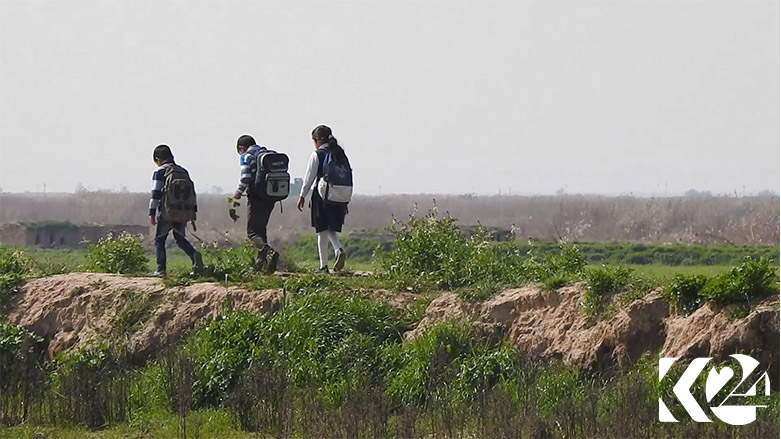Specter of ISIS in Iraq lingers for Kirkuk's Kakai minority

ERBIL (Kurdistan 24) – Despite the territorial collapse of the Islamic State in Iraq in late 2017, the group continues to menace members of the Kakai minority community in the disputed province of Kirkuk.
Kakais follow Yarsanism, a religion founded in the late 14th century in what is now western Iran. Members residing in the Kurdistan Region and Iraq's disputed territories are usually considered to be Kurdish in ethnicity.
Having suffered religious persecution from multiple directions, both historically and in recent decades, members of the community have often sought to avoid attention by keeping their practices relatively secret in an attempt to avoid bringing attention to themselves. Though exact statistics on them are scant, it is believed that at least 100,000 Kakais live in various parts of the country, mostly in the disputed territories.
They are among the many minorities in Iraq that have been systematically targeted by the Islamic State but without garnering the same level of news coverage and general awareness as with other more well-known groups. A significant number of Kakai families evacuated their villages in Kirkuk's Daquq district following the militant group's rise to prominence in 2014.
They eventually took up arms and, along with Kurdish Peshmerga forces, held a frontline against militants of the terrorist organization that continued to operate in surrounding areas, even as Baghdad retook the country piece by piece.

Defensive capabilities, however, significantly deteriorated after the central Iraqi government overran Kirkuk and other disputed territories and drove Kurdish forces from them in response to the Kurdistan Region's independence referendum of September 2017.
Since then, the exodus of Kakais has continued, as residents feel the locally-stationed security forces have been ineffective at countering the Islamic State's continued insurgency in and around the area.
In June, members of the Kakai community called on the Kurdistan Regional Government (KRG), Baghdad, the United Nations, and civil society organizations to protect them from being targeted by remnants of the Islamic State that has remained.

In Daquq, there are 39 Kurdish villages, over a dozen of which are Kakai. Nine of these have been completely evacuated, local resident Bourhan Braim recently told Kurdistan 24.
According to Braim, life is stressful and dangerous in Daquq, where one must be careful not to tread too far from one's home village. He explained that his family has a large farm further south, but have abandoned it in fear of the ongoing implicit threat of the Islamic State.
“If the situation continues as such, demographic change will occur,“ Kakai activist Rajab Kakai warned in an interview with Kurdistan 24 in late February. “That's why we are in great danger and we do not know if the Kurdish political class has sensed it or not."
Despite this, the population's resilience in the face of security uncertainty is palpable.
One example is a rural school where a limited staff continues educating children from a Kakai village. Saad Kakai, the headmaster of the Qilkhani elementary school, explained that it is common for roadside bombs, “planted daily,“ to detonate as vehicles pass. This, he said, is something he risks daily during his commute to and from school.

The headmaster added that such a “security vacuum“ causes an ever-present sense of paranoia in everyday life. The security forces stationed in the area “do not come to clear the roads,“ he added, remarking, “I rely on myself and God.“
This inability of the government to address local security concerns has devastated the community, he explained, as incident after incident take their toll on the day-to-day lives of families.
“Even one of my brothers is a martyr.“
Editing by John J. Catherine
(Additional reporting by Kurdistan 24 correspondent from Kirkuk Hemin Dalo)
